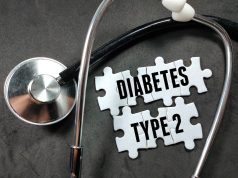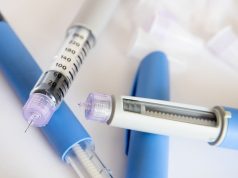Risk ratios were 1.27 and 1.55 for GERD and its complications during a median follow-up of three years for GLP-1 RA versus SGLT-2 inhibitor users
By Elana Gotkine HealthDay Reporter
THURSDAY, July 17, 2025 (HealthDay News) — For patients with type 2 diabetes, glucagon-like peptide-1 receptor agonists (GLP-1 RAs) are associated with an increased risk for gastroesophageal reflux disease (GERD) and its complications compared with sodium-glucose cotransporter-2 (SGLT-2) inhibitors, according to a study published online July 15 in the Annals of Internal Medicine.
Yunha Noh, Pharm.D., Ph.D., from Chonnam National University in South Korea, and colleagues conducted an active comparator new-user cohort study to estimate the effect of GLP-1 RAs versus SGLT-2 inhibitors on the risk for GERD and its complications among patients with type 2 diabetes. Adults initiating GLP-1 RAs or SGLT-2 inhibitors between Jan. 1, 2013, and Dec. 31, 2021, were followed until March 31, 2022; data were included for 24,708 new users of GLP-1 RAs and 89,096 new users of SGLT-2 inhibitors.
The researchers found that the risk ratios were 1.27 and 1.55 for GERD and its complications, respectively, during a median follow-up of 3.0 years among GLP-1 RA users versus SGLT-2 inhibitor users, with a risk difference of 0.7 per 100 patients and 0.8 per 1,000 patients, respectively.
“Although our findings need to be corroborated in other studies, clinicians and patients should be aware of a possible adverse effect of GLP-1 RAs on GERD,” the authors write.
Two authors disclosed ties to the pharmaceutical industry.
Copyright © 2025 HealthDay. All rights reserved.








